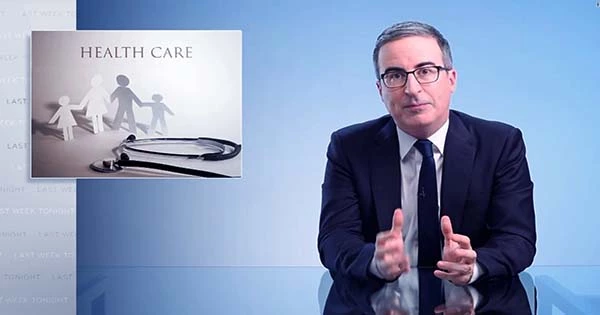The beginning of a new year is generally associated with the changing of fresh leaves. Maybe you want to quit smoking for good, or maybe you want to cut down on red meat in your diet – whatever your new year’s goal is, it’ll almost certainly entail trying something new, being healthier, and enjoying life more. That appears to apply to the government as well. The No Surprises Act will go into effect in the United States tomorrow, January 1, 2022. The Act, which passed with bipartisan support at the end of last year and fine-tuned over the previous year, prohibits unexpected medical costs for almost all emergency – and some regular – treatment.
Loren Adler, associate director of the USC-Brookings Schaeffer Initiative for Health Policy, told CNN, “The No Surprises Act is really one of the largest consumer safeguards to pass in recent decades.” “Now, patients don’t have to worry about obtaining a surprise out-of-network cost whether they travel to the hospital for an emergency or elective scheduled treatment, such as surgery.” This is a significant step. Few things about the United States perplex the rest of the world more than its healthcare system:
Unlike people of every other industrialized country in the world, Americans rely on a patchwork of private insurance firms, specialized plans for individuals who fit different tight criteria, and, of course, crossing their fingers and hoping. Even for individuals who have decent health insurance, the situation may be tense, and insured Americans who visit the hospital – even one they have double-checked covered by their plan – have a one-in-five risk of receiving a surprise charge at the conclusion of their stay.
“Most individuals with health insurance travel to in-network emergency rooms and expect to be treated by in-network doctors,” said Zack Cooper, an assistant professor of public health and economics at Yale University. Cooper co-authored an enormous 2016 study with colleague Fiona Scott Morton, the Theodore Nierenberg Professor of Economics at Yale School of Management, exposing the scale of the problem confronting Americans in need of healthcare: the average surprise bill was a whopping $622.55 – and potentially much higher depending on the treatments required.
Cooper said at the time, “This is just terrible, and we have to do better.” “People should not risk financial collapse as a result of medical expenditures that they cannot prevent.” Cooper and Morton’s research had a tremendous impact: it rapidly drew the attention of politicians in Washington, DC, who enlisted the help of the duo, as well as other scholars and specialists, to advise on the matter. Finally, in December 2020, Congress enacted a massive COVID-19 relief and government-funding package in a rare bipartisan landslide vote, which included the clause against unexpected medical expenses, which takes effect tomorrow.
“Working with legislators was difficult, but it yielded a policy solution that should protect individuals from the shock and suffering of a large, unexpected medical cost,” said Steven Berry, Jeffrey Talpins Faculty Director at Yale’s Tobin Center for Economic Policy. “We intend to learn from their experience and apply it to other issues that require well-considered policy solutions.” While the new rule should safeguard patients from large and unexpected emergency treatment expenses — according to the New York Times, charges would be limited to in-network levels regardless of who serves them – there are a few major exceptions.
Ambulance firms will be permitted to charge customers directly (albeit air ambulances are protected by the Act), however, Congress has not ruled out the prospect of future coverage. Patients who require routine treatment must still pick a facility and doctor who is covered by their insurance – and make sure they do not sign any documents agreeing to pay more. According to the New York Times, if you take these steps, you will not be surprised by a cost – regardless of who actually treats you.
While a few medical groups have filed lawsuits to challenge aspects of the Act, it is doubtful that the new safeguards will harm — the legal proceedings aimed at influencing a specific area of hospital-insurer discussions rather than the Act itself. However, Congress is not the only area where the new safeguards have widespread support; significant medical organizations like the Business Group on Health and the American Heart Association have also spoken out in favor of the legislation.
In an interview with CNBC, Patricia Kelmar, a director of health care campaigns at US PIRG, said, “[The existing system] takes advantage of individuals at their most vulnerable moment.” “It’s not like you’re presented with a list of providers from which to choose,” she noted. “At that time, the last thing you want to do is check the network condition and ask for cost estimates.”
















